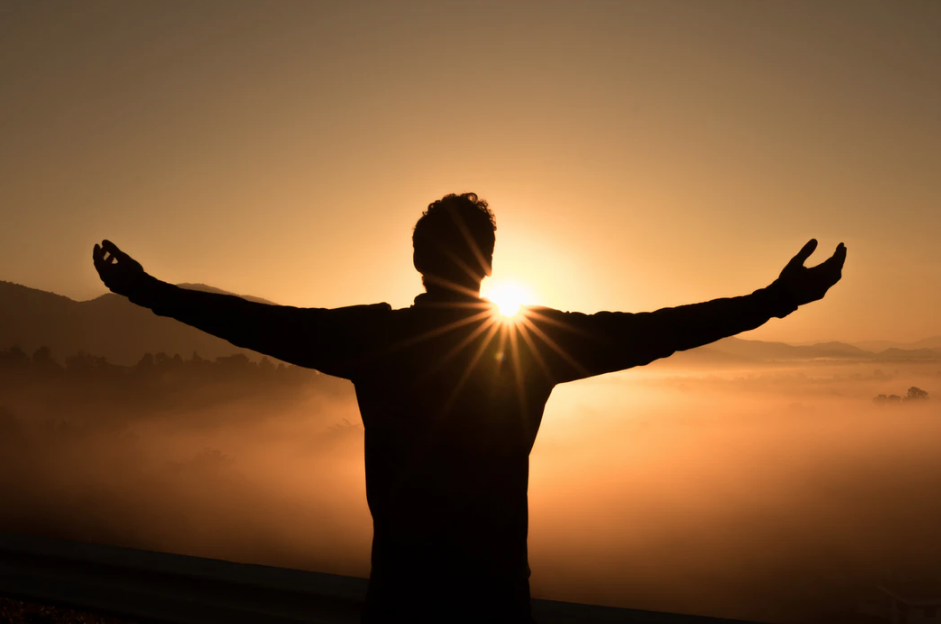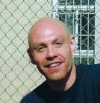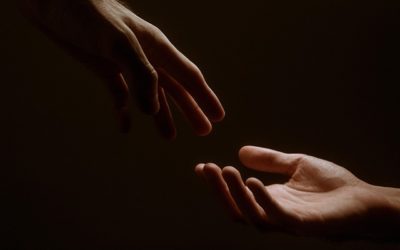Faith is the essence of being. Everyone has faith. Whether theistic, pantheistic, or atheistic, everyone believes in something, and faith perspectives stack exponentially. I mean, we must have faith in not only the legitimacy of our faith, but also how each perspective merges with another.That is, we must believe our faith perspectives are true, or ultimately we don’t believe them.
Personally, I am a Christ follower. I have faith in the accuracy and legitimacy of the biblical framework when effectively linked with common sense and married to scientific discoveries, revealing yet another layer: I have faith in the scientific method as well, believing that scientific inquiry and religious faith are not mutually exclusive but complementary. Faith solves philosophical problems that science cannot. The scientific method can only measure the physical world. Philosophy and theology attempt to interpret and explain those measurements. Faith, however, determines a person’s worldview based upon the subjective integration of available information from both science and philosophical or religious paradigms.
Faith can be difficult to define, but you know it when you see it. It is entirely peculiar, modified by one’s experiences and particular apprehension of reality. But basically it is a durable and enduring belief or trust is something or someone, right? However, the very capacity for faith is, in itself, evidence of a spiritual component within the human personality structure. Whatever you put your faith in will grow in your life. Faith is existential and inescapable, providing meaning and purpose while shaping one’s thoughts, goals, behaviors, and worldview. Yet the application of faith to everyday life is volitional, an act of the will. A person can know what should be done and still not do it, or know something should not be done and do it anyway. Regardless of one’s faith perspective, spiritual convictions can be either a blessing or a burden, a fountain of strength and perseverance or a pit of quicksand, pulling a person deeper into despair and self-loathing.
If a person has a conviction of faith, a genuine commitment to a moral value system but consistently fails to apply it or grow spiritually through an inability to apply it situationally, then he or she will feel inadequate, unworthy, and inferior on a deep, existential level. Over time, the pain of self-contempt will become endemic to the personality, part of the person’s identity, making it extremely difficult to shake at that point. Self-esteem is eroded, creating a sort of downward cycle of unworthiness, increasing the likelihood of failing to live up to the standards of one’s faith. And on the cycle goes, leading to insecurity, compromise, and defensiveness as a result of spiritual inauthenticity. The subsequent shallowness leads to felt emptiness and an ineffectual fulfillment of purpose.
On the other hand, when the principles of one’s faith are actively applied in ways that, albeit imperfectly, influence decisions and behaviors, feelings of self-respect and self-esteem increase, leading to spiritual empowerment. One feels the strength and authenticity of his or her faith. When a person lives out his or her beliefs, spiritual formation develops, and he or she experiences actualization of purpose, increasing opportunities to include faith paradigms in the decision-making process of one’s life. An upward cycle takes shape that expands worldview and faith perspectives through the accomplishment of growth objectives.
My faith, in conjunction with my education, has played a pivotal role in my personal transformation. My journey to life-changing faith in God’s existence and personal concern for me as an individual was certainly profound, but it did not break the laws of physics or include any strange hallucinations or visions. It occurred quite organically, actually.
In July of 2002, I was involved in a fist fight. I was taken to disciplinary segregation (the hole), and one day something happened. I was standing in the shower, and you need to understand that the showers in segregation are basically single-celled cages. It was dark, only a single, dim light in the center of the ceiling that revealed staggering filth. Hair and dirt lined the walls and used bars of soap and body fluids on the floor. I was disgusted. I felt like I was in the bowels of the earth, completely alone in that tiny cage. I knew it was my own poor decisions that put me there, and that only made it hurt worse. My soul was in profound pain, and I knew nobody cared. Nobody.
It was at that moment that I felt in my soul, in the deepest part of myself, the idea that I was worth more than the way I was living. It did not feel like my own inner voice or even a voice at all, just the idea, which was something I had not experienced before. Although inexplicable, it occurred to me that self-centered decisions will always lead to the dark places. I felt the incredibly strong conviction that if I continue to make myself the most important part of my story, then I would never be anything more than I was. I would never become the person I was designed to be. I felt a pull inside of me, telling me there is a better way to be. Yet, not only did I not know how to be any different than I had always been or how to make different decisions than I had always made. I had no idea who I was supposed to be, either. Discovering those things became a journey of faith over the next several years and continues today, and I am such a different man because of it.
I am certainly not trying to tell anyone what they should believe or how they should live. I have plenty of my own stuff to figure out, and I deeply value the idea of freedom to choose for oneself. After all, God gave us all the freedom to pursue Him or not, to believe or not. Who are human beings to take that away? I am only sharing some thoughts about my own understanding of faith and its importance in my life.
I am not claiming that I have arrived at this place of spiritual enlightenment that others have not. I’m not even trying to define enlightenment or what that looks like. What I am saying is that I have faith, and I know what I believe. My faith in the sinless life, atoning death, and bodily resurrection of Jesus of Nazareth, the Messiah, has made me a better, more empathetic, compassionate, and forgiving man, as well as provided me with a framework to move beyond my self-centeredness and even learn to forgive myself, which admittedly has not been easy, nor should it be, in my opinion.
Faith can fill the soul with joy and light. While convictions of truth may be uncomfortable or unpopular, they are foundations upon which personal growth is built. In moments of weakness and self-doubt, emotional exhaustion, identity crisis, profound grief, fear or pain, faith can guide us home. It can help us learn and understand who we are and even why we are. The key, I think, is to know, to really know what you believe. Otherwise, you cannot lean on that which you don’t really have a firm grasp.
I would encourage anyone who is lost in the chaos of contemporary times, of division and shallowness, whatever your faith perspective, live what you believe. Authenticity brings congruency and peace. Resist the lure of materialistic narcissism and hedonistic humanism that would have you believe that faith does not matter. We have been designed with a spiritual aspect that influences well-being in either positive or negative ways depending upon whether or not it is acknowledged and nourished. Find truth. Pursue it with your whole being and refuse to relinquish it. Find that balance between conviction of faith and love for those who believe differently. It is no sin to clutch your beliefs close to your breast with one hand while sifting through the thoughts, beliefs, and traditions of those who walked this earth before you with the other. Arrogance can lead to a closed mind that may miss unexpected insight. Life is too short. Don’t miss a thing.






0 Comments